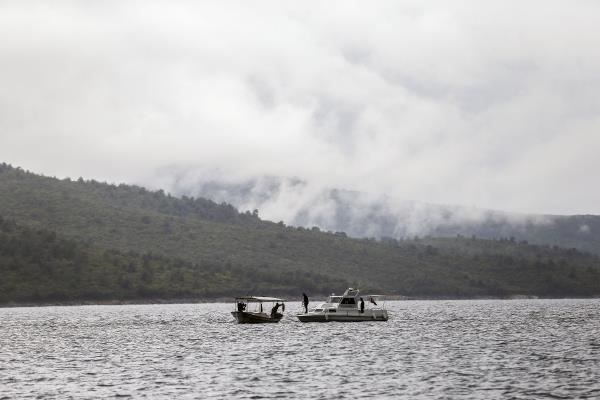
18 November 2019, Rome - FAO and Italy's National Research Council (CNR) have agreed to intensify their collaboration in iMarine, a cloud-based community platform powered by the D4 Science Infrastructure to help improve fisheries management.
The agreement assures that FAO's extensive knowledge of fisheries and aquaculture will be further integrated in the iMarine's portal and can be used in data research and development projects.
The cooperation in iMarine allows scientists from CNR and across the planet to promote Open Data and Open Science. This is useful when defragmenting research data and to develop reusable and cost-effective monitoring tools useful across marine and food sciences.
The new Memorandum of Understanding is a prime example of collaboration in the science-policy nexus, facilitating work on subjects ranging from data bases on vulnerable marine ecosystems, global atlas initiatives for tuna and aquaculture, fish stock assessment tools and the Global Record of Stocks and Fisheries. The platform offers tools that are already used in various FAO capacity-building initiatives linked to efforts to keep fishing within biologically sustainable levels.
Árni M. Mathiesen, FAO Assistant Director General, Fisheries and Aquaculture Department, and Roberto Scopigno, Research Director at the CNR's Institute for Computer Science and Technologies (ISTI), inked the memorandum that formalizes the collaboration for the next five years. They did so on the sidelines of the first day of the International Symposium on Fisheries Sustainability FAO is hosting this week.
About iMarine
iMarine was launched in 2015 to establish and operate an e-infrastructure supporting the principles of the ecosystem approach to fisheries management and conservation of marine living resources, and it ultimately aims at supporting FAO's Blue Growth Initiative.
Doing so entails establishing a community of users and representatives to formulate policy recommendations, supporting data infrastructure that offers user-level and application-level services to support those policies, and deploying additional software components to enhance implementation of the services offered.
The Ecosystem Approach to Fisheries (EAF) is becoming the main reference framework for managing fisheries and implementing the principles of sustainable development. Its core principles emerged in 1995 Code of Conduct for Responsible Fisheries (CCRF), inherited from the 1982 Convention on the Law of the Sea (UNCLOS) and the 1992 Convention on Biological Diversity (CBD).
FAO and CNR-ISTI are committed to maintaining virtual research environments and catalogues for a number of current projects as well as future initiatives, and to ensure that innovations in information technology fruitfully benefits FAO member countries and partners in equitable, transparent and inclusive ways through proper governance.
The Global Record of Stocks and Fisheries, for example, provides support information allowing fisheries managers, policy makers and stakeholders to monitor the status of fish stocks and contribute to traceability, certification and quality control programmes.
The planned aquaculture atlas will provide a reference service for detecting and quantifying aquaculture farming structures - mostly cages and ponds - using satellite information in combination with computation of spatial features.